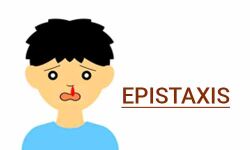- Home
- Medical news & Guidelines
- Anesthesiology
- Cardiology and CTVS
- Critical Care
- Dentistry
- Dermatology
- Diabetes and Endocrinology
- ENT
- Gastroenterology
- Medicine
- Nephrology
- Neurology
- Obstretics-Gynaecology
- Oncology
- Ophthalmology
- Orthopaedics
- Pediatrics-Neonatology
- Psychiatry
- Pulmonology
- Radiology
- Surgery
- Urology
- Laboratory Medicine
- Diet
- Nursing
- Paramedical
- Physiotherapy
- Health news
- Fact Check
- Bone Health Fact Check
- Brain Health Fact Check
- Cancer Related Fact Check
- Child Care Fact Check
- Dental and oral health fact check
- Diabetes and metabolic health fact check
- Diet and Nutrition Fact Check
- Eye and ENT Care Fact Check
- Fitness fact check
- Gut health fact check
- Heart health fact check
- Kidney health fact check
- Medical education fact check
- Men's health fact check
- Respiratory fact check
- Skin and hair care fact check
- Vaccine and Immunization fact check
- Women's health fact check
- AYUSH
- State News
- Andaman and Nicobar Islands
- Andhra Pradesh
- Arunachal Pradesh
- Assam
- Bihar
- Chandigarh
- Chattisgarh
- Dadra and Nagar Haveli
- Daman and Diu
- Delhi
- Goa
- Gujarat
- Haryana
- Himachal Pradesh
- Jammu & Kashmir
- Jharkhand
- Karnataka
- Kerala
- Ladakh
- Lakshadweep
- Madhya Pradesh
- Maharashtra
- Manipur
- Meghalaya
- Mizoram
- Nagaland
- Odisha
- Puducherry
- Punjab
- Rajasthan
- Sikkim
- Tamil Nadu
- Telangana
- Tripura
- Uttar Pradesh
- Uttrakhand
- West Bengal
- Medical Education
- Industry
Study finds strong links of Epistaxis with high blood pressure

Republic of Korea: The patients with epistaxis or nosebleed have high blood pressure (BP) at presentation, according to a recent study in the American Journal of Emergency Medicine. Also, such patients had a higher proportion of newly diagnosed hypertension within 6 months.
Epistaxis is more common in hypertensive patients, perhaps owing to vascular fragility from long-standing disease.
Hypertension, however, is rarely a direct cause of epistaxis. More commonly, epistaxis and the associated anxiety may cause an acute elevation of blood pressure.
Chsngsun Kim, Sahmyook Medical Center, Republic of Korea, and colleagues aimed to investigate whether high blood pressure and hypertension are associated with epistaxis.
The researchers performed a retrospective study with a propensity score matching analysis at the emergency departments (EDs) of a tertiary university hospital.
The mean blood pressure (BP, systolic and diastolic) and proportion of subjects with elevated BP (systolic >120 and/or diastolic >80 mmHg) at presentation were compared between the epistaxis group and matched control group. Also, the proportion of patients with newly diagnosed hypertension within six months between the two groups was compared.
The researchers matched a total of 1353 patients with epistaxis and the same number of those with simple lacerations.
Key findings of the study include:
- The mean systolic and diastolic BPs of the epistaxis group were significantly higher than those of the matched control group (157.1 ± 26.4 and 91.4 ± 17.0 mmHg versus 144.9 ± 32.4 and 84.2 ± 13.5 mmHg).
- The proportion of patients with elevated BP at presentation was also significantly higher in the epistaxis group (91.4%) than in the matched control group (86.2%).
- Of the 724 (53.5%) patients without pre-existing hypertension in the epistaxis group, 660 patients were followed, of whom 107 (16.2%) were newly diagnosed with hypertension within 6 months, which was a significantly higher percentage than among the matched controls (4.9%).
"The patients with epistaxis had elevated BP at presentation and a higher proportion of newly diagnosed hypertension within six months compared to the matched controls," concluded the authors.
The study, "Is epistaxis associated with high blood pressure and hypertension? Propensity score matching study," is published in the American Journal of Emergency Medicine.
DOI: https://doi.org/10.1016/j.ajem.2019.10.025
Dr Kamal Kant Kohli-MBBS, DTCD- a chest specialist with more than 30 years of practice and a flair for writing clinical articles, Dr Kamal Kant Kohli joined Medical Dialogues as a Chief Editor of Medical News. Besides writing articles, as an editor, he proofreads and verifies all the medical content published on Medical Dialogues including those coming from journals, studies,medical conferences,guidelines etc. Email: drkohli@medicaldialogues.in. Contact no. 011-43720751


